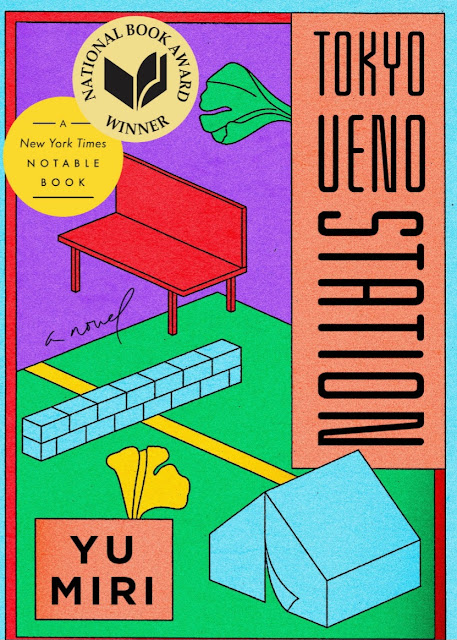2023 is the 15th Year in which I have participated in The Japanese Literature Challenge hosted by Dolce Bellezza. In 2009 when I first participated I had yet to read any works originally written in Japanese. Now numerous Japanese writers are on my read all I can of their works list.. The post World War Two Japanese Novel is a world class cultural treasure.
Both new and experienced readers will find numerous suggestions on the website. To participate you need only post on one work and list your review on the event website (listed above). New book bloggers will find participation a good way to meet others and expand those following their blog
In January for The Japanese Literature Challenge I posted upon
At the End of the Matinee by Keiichiro Hirano -2016- 306 pages- translated from the Japanese by Juliet Winters Carpenter
Tokyo Ueno Station- A Novel by Yu Miri -2014- translated from the Japanese by Morgan Giles - 2019 - 189 Pages
Kazu, the narrator, has recently passed away, his life was one of hard physical labor filled with great pain brought on by the passing of his parents, his son at 21 and his granddaughter at 23. His daughter and her child drowned in the 2011 tsumani
"I thought that once I was dead, I would be reunited with the dead," he reflects. "I thought something would be resolved by death ... But then I realized that I was back in the park. I was not going anywhere, I had not understood anything, I was still stunned by the same numberless doubts, only I was now outside life looking in, as someone who has lost the capacity to exist, now ceaselessly thinking, ceaselessly feeling --"
In a series of flashbacks we learn of his past. He worked on the construction of the venue for the Tokyo Olympics. Then he became homeless when his job ended. He lived in a homeless camp for a while but the government wanted them moved out before the games began.
We are given a powerful account of what it was like to be at the bottom of Tokyo society
YU MIRI is a writer of plays, prose fiction, and essays, with over twenty books to her name. She received Japan’s most prestigious literary award, the Akutagawa Prize. After the 2011 earthquake and tsunami in Fukushima, she began to visit the affected area, hosting a radio show to listen to survivors’ stories. She relocated to Fukushima in 2015 and has opened a bookstore and theater space to continue her cultural work in collaboration with those affected by the disaster.
I hope to post on a few short stories by Japanese authors this month.
Mel Ulm





1 comment:
This one sounds pretty good! Adding it to my TBR.
Post a Comment